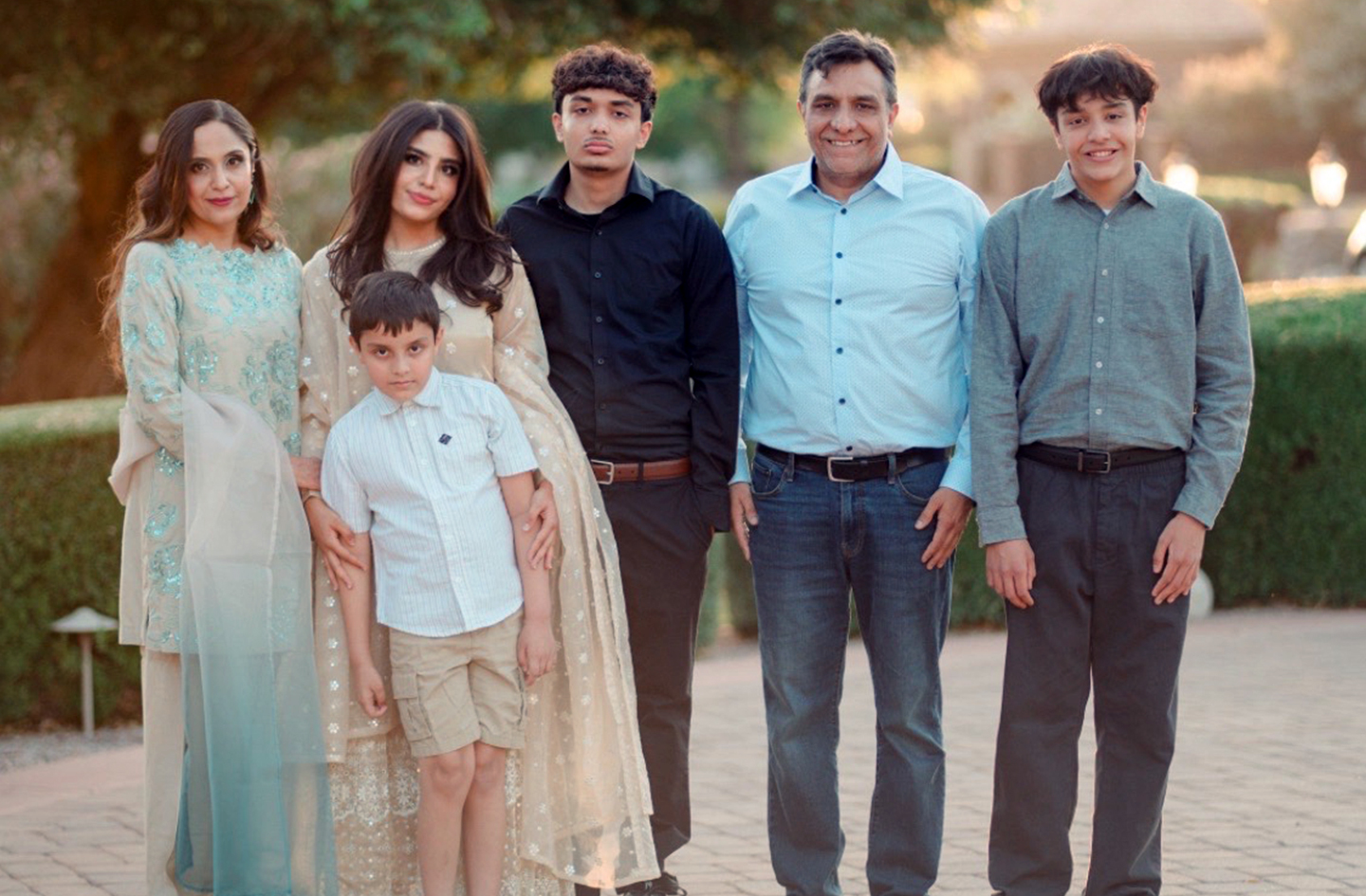
White Coat Profile: Michelle Sheikh

The White Coat Ceremony marks the first time a medical student will don his or her white coat, the defining symbol of a physician. The coat bestows a great honor on each student, and with it comes a responsibility to uphold the trust of every patient they will encounter. The Class of 2029 will receive their white coats on July 18 during a ceremony that begins at 3:30 p.m. in Phoenix Symphony Hall.
Meet Michelle Sheikh
Born in Phoenix, Arizona, and raised in Gilbert, Michelle Sheikh attended Arizona State University (ASU), where she earned two degrees in biomedical sciences and global health.
Sheikh credits her mother and father for truly dedicating their lives to ensuring their children received the best possible opportunities, which she said she is endlessly grateful for. Sheikh is also incredibly lucky to have the support of her extended family.
Path toward Medicine
What was the spark that led you to become a physician?
Interestingly, the spark that led me toward becoming a physician began in high school with a research project. After learning about a two-year-old refugee girl who tragically passed away from preventable burn wound infections, I developed a sustainable antibiotic ointment aimed at helping displaced populations.

That project deepened my understanding of global health disparities, and afterward, I began volunteering directly with refugee communities. Through that hands-on work, I saw the real change I could make by working directly with patients and their families, which further solidified my interest in clinical care.
Later, while working in a pediatric clinic, I again saw how physicians could dramatically impact outcomes through treatment and compassionate care. These experiences made me realize that I wanted to be directly involved in patient care.
Watching my father, a pulmonologist, care for critically ill patients throughout the COVID-19 pandemic showed me the profound difference a dedicated physician can make. These experiences together inspired my commitment to pursue medicine.
Did you do any volunteering in health fields prior to medical school?
Prior to medical school, I worked extensively with the Refugee Education and Clinic Team at ASU, where I focused on delivering preventive health education to various refugee communities across Arizona.
This experience allowed me to engage directly with Arizona’s refugee communities, specifically the Afghani and Somali communities. I have also volunteered with Zone 7 Health, a medical student-run nonprofit focused on addressing the key determinants of health, beyond health care.
Through Zone 7, I participated in street runs in Downtown Phoenix, providing basic medical screenings and helping connect individuals to essential health resources.
The College of Medicine – Phoenix

Why did you choose the College of Medicine – Phoenix?
Initially what drew me to the University of Arizona College of Medicine – Phoenix was the Certificate of Distinction in Global Health. During my undergraduate studies, I pursued a degree in global health, and I was excited to see a program that would allow me to continue exploring this passion in medical school.
As someone who was born and raised in Arizona, attending the U of A College of Medicine – Phoenix allows me countless opportunities to help impact and support my local community.
What excites you most about beginning medical school?
I’m excited to explore and take full advantage of everything the College of Medicine – Phoenix has to offer. I especially look forward to joining interest groups and building connections with my classmates.
Significance of the White Coat
What does the white coat mean to you?
To me the white coat symbolizes and provides a visible promise of the lifelong commitment to advocacy, servant leadership and compassionate care. To be receiving the white coat is an incredible privilege as it reflects not only years of hard work, but also the investment and trust that my family, mentors and community have placed in me.
About the College
Founded in 2007, the University of Arizona College of Medicine – Phoenix inspires and trains exemplary physicians, scientists and leaders to advance its core missions in education, research, clinical care and service to communities across Arizona. The college’s strength lies in our collaborations and partnerships with clinical affiliates, community organizations and industry sponsors. With our primary affiliate, Banner Health, we are recognized as the premier academic medical center in Phoenix. As an anchor institution of the Phoenix Bioscience Core, the college is home to signature research programs in neurosciences, cardiopulmonary diseases, immunology, informatics and metabolism. These focus areas uniquely position us to drive biomedical research and bolster economic development in the region.
As an urban institution with strong roots in rural and tribal health, the college has graduated more than 1,000 physicians and matriculates 130 students each year. Greater than 60% of matriculating students are from Arizona and many continue training at our GME sponsored residency programs, ultimately pursuing local academic and community-based opportunities. While our traditional four-year program continues to thrive, we will launch our recently approved accelerated three-year medical student curriculum with exclusive focus on primary care. This program is designed to further enhance workforce retention needs across Arizona.
The college has embarked on our strategic plan for 2025 to 2030. Learn more.